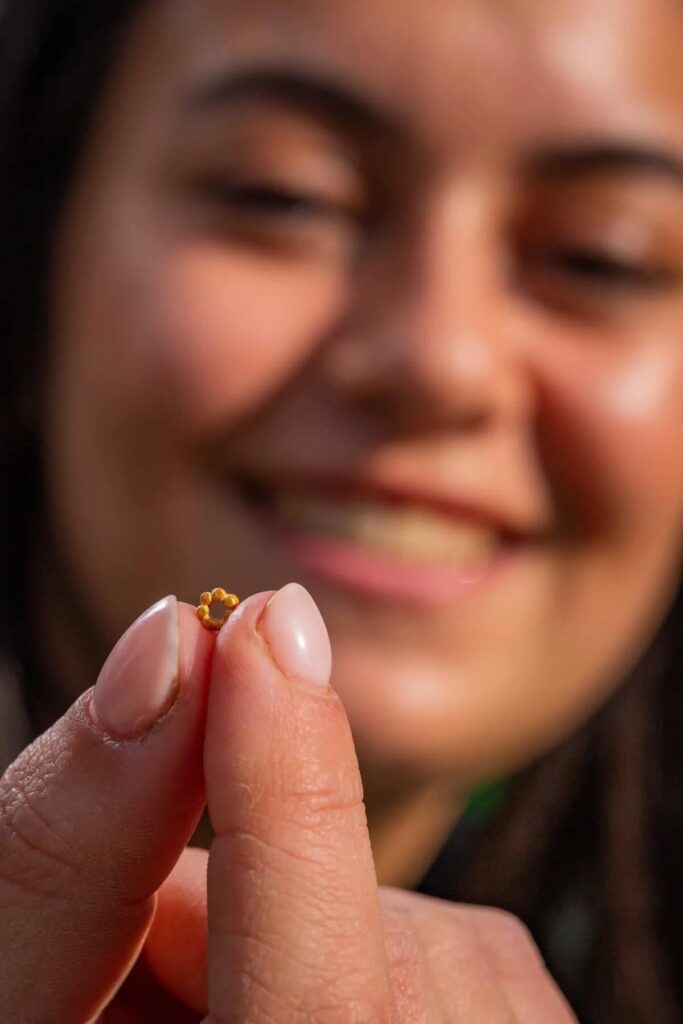1,600-year-old unique gold bead found in Jerusalem’s City of David
A unique gold bead dating back to the Roman era has been discovered in Jerusalem by an 18-year-old volunteer. The find was uncovered during the painstaking sifting of dirt removed from the Pilgrimage Road excavation site.
“I poured the pail onto the sieve and began to wash the material that was brought from the excavations in the City of David,” said Hallel Feidman, the National Service volunteer who found the bead, in a statement emailed to IFLScience. “And then I saw something shiny in the corner of the sieve, different, that I don’t normally see. I immediately approached the archaeologist and he confirmed that I found a gold bead. Everyone here was very excited.”

The bead is made of pure gold and dates back at least 1,600 years. It is evidence of incredible craftsmanship – the individual tiny balls of gold would have needed to be fixed together to create its flower-like shape. Gold items are rarely found during archaeological digs in the region, and beads designed with this level of complexity are particularly hard to come by.
Although similar beads have previously been excavated near the City of David, these have all been made of silver.
Dr. Amir Golani of the Israel Antiquities Authority described just how rare a find this is: “Throughout all my years in archaeology, I have found gold perhaps once or twice, so to find gold jewelry, is something very very special.”
“The most interesting aspect of the bead is its unique and complex production method,” Golani added. “A good understanding of the materials and their properties is required, as well as control over the heat, in order to on the one hand, solder the tiny balls together to create a tiny ring, while also preventing overheating which may lead all the gold to melt.”
The bead probably originally formed a tiny part of a larger piece of jewelry, such as a necklace or bracelet, that according to Dr. Golani could only have been worn by “an affluent person, with means.”
Indeed, the remains of the building in which it was found would once have been a grand structure, its decorative mosaic floors a testament to the wealth of its occupants.

The manufacturing technique used to make the bead is thought to originate from Mesopotamia – this piece of jewelry could have found its way to Jerusalem through trade, or could even have been an heirloom piece passed down through generations of family members.
“Even with today’s advanced technology, creating something like this would be very complex,” pointed out Eli Escusido, Director of the Israel Antiquities Authority. “A close examination of this object fills one with a deep sense of admiration for the technical skill and ability of those who came before us many centuries ago.”




